Inaugural Professorial Lecture Series 2017
World-changing research. Free lectures.
The Inaugural Professorial Lecture Series at the University of Waikato introduces our newest professors to the community and gives them a chance to demonstrate how their work is having a real impact on the world around us.
All lectures are free, open to the public and held at the Gallagher Academy of Performing Arts on Tuesdays (dates below) beginning at 5.15pm. A cash bar is open from 4.30pm.
The 2017 Inaugural Professorial Lecture schedule
| Date | Professor | Faculty |
No Inaugural Professorial Lecture in March
| 11 April | Professor Mike Duke | School of Engineering, Faculty of Science and Engineering |
| 30 May | Professor Devon Polaschek | Psychology Programme, Faculty of Arts and Social Sciences |
No Inaugural Professorial Lecture in June
| 18 July | Professor Grant Hammond | Te Piringa – Faculty of Law |
| 15 August | Professor Ian Hawes | School of Science, Faculty of Science and Engineering |
No Inaugural Professorial Lecture in September
| 17 October | Professor Yifan Chen | Associate Dean of the School of Engineering, Faculty of Science and Engineering |
| 14 November | Professor Mark Dyer | Dean of the School of Engineering, Faculty of Science and Engineering |
| 28 November | Professor Maryanne Garry | Psychology Programme, Faculty of Arts and Social Sciences |
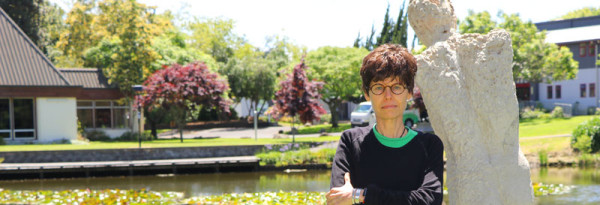
28 November 2017
Memory, reality, and the end of facts
Professor Maryanne Garry
Memory is not a Youtube video; we can’t push play, rewind and pause it. Our memory is the stories we tell ourselves about ourselves and the world around it.
According to the University of Waikato’s Professor of Psychology Maryanne Garry, just because you remember something does not make it a true reflection of what has occurred – or that it occurred at all.
At her Inaugural Professorial Lecture on 28 November, Professor Garry will analyse common concepts about memories and will answer the question: how is it that otherwise intelligent, rational people can remember things they never really saw, or experiences they never really had?
Garry’s lecture will draw on her world-renowned research, giving an insight into how memories can be changed and influenced. Over more than 25 years of research, Garry has amassed a solid body of theoretically-grounded, applied research that sheds light on the causes and consequences of these “false” memories.
The lecture will delve into the implications that this has on everyday life but more importantly the significant implications it has for the legal system. She poses the question do we all need to become our own sceptic when recalling past events?
During her lecture Professor Garry will highlight techniques she and her team have developed to prove how an individual’s memory can be driven towards a false recollection. The lecture will also touch upon the development of the case against repressed memories and how this lea to her research journey.
Maryanne Garry joined the University of Waikato in 2016 as a Professor of Psychology and a Professor in the New Zealand Institute for Security and Crime Science.
Professor Maryanne Garry’s Inaugural Professorial Lecture is on Tuesday 28 November starting at 5.15pm. It is free and open to the public.

14 November 2017
STEAM without the hot air
Professor Mark Dyer
Society looks to engineers to design and build all the things that support human life – from the basic provision of shelter, water, and safety, to the entire urban infrastructure. Yet Dean of Engineering at the University of Waikato, Professor Mark Dyer says engineering education rarely equips people to see engineering in those broad terms.
At his Inaugural Professorial Lecture on November 14, Professor Dyer will explore the changing face of engineering education and his own career that has seen him promote creativity and innovation alongside the traditional technical engineering disciplines.
He will challenge the fashionable concept of STEAM, which injects art into the sciences, and technology in the hope of generating creativity. Instead he advocates the need for a more holistic framework for engineering that encompasses design, craft, physical sciences and human sciences.
Professor Dyer joined Waikato’s School of Engineering from Trinity College, Dublin where for nine years he led TrinityHaus, an interdisciplinary research centre to provide innovative solutions for buildings, neighbourhoods and cities, and before that he worked in the construction sector.
Professor Dyer’s Inaugural Professorial Lecture is open to the public and will take place on Tuesday 14 November at 5.15pm, at the Academy of Performing Arts at the University of Waikato, Hamilton.
Inaugural Professorial Lectures at the University of Waikato introduce new professors to the community and gives them a chance to demonstrate how their work is having a real impact on the world around us.
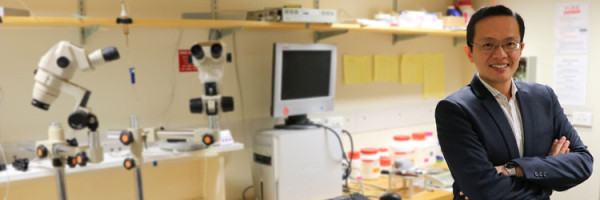
17 October 2017
From Biologically Inspired ICT to ICT-Inspired Biomedicine
Professor Yifan Chen
Using information and communications technology (ICT) to better diagnose and treat cancer is a leading-edge interdisciplinary field pioneered by Professor Yifan Chen from the School of Engineering at the University of Waikato. It is research that may have important applications for a new breast cancer screening technology currently being trialled in China.
In his Inaugural Professorial Lecture on 17 October, Professor Chen will talk about how the computing theories used for cancer detection and the communication theories used for targeted therapies come together to make "ICT Inspired Biomedicine".
He’s working in areas including targeted drug delivery for cancer treatment, in which drugs are sent to specific parts of the body where there is diseased tissue without causing harm to healthy tissue.
Professor Chen also led the team that developed a new non-invasive method of breast screening. A large scale clinical trial began last year, the first of its kind in the Asia-Pacific region. The new system aims to scan women in all age groups and all high-risk groups at affordable costs with imaging performance comparable to that of X-ray mammogram, and so it has the potential to transform the existing breast screening programmes worldwide.
Professor Chen’s Inaugural Professorial Lecture will be held at the Academy on Tuesday 17 October starting at 5.15pm. It is free and open to the public. Parking is free after 4.30pm in the University of Waikato’s Gate 1 (Knighton Road) carpark.
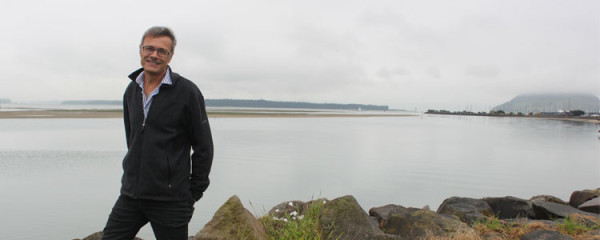
15 August 2017
Windows to other worlds: Antarctic lakes, astrobiology and milestone moments for life on ancient earth
Professor Ian Hawes
As our ability to extend observations beyond earth improves, planetary scientists are looking anew to the potential for life on other planets – astrobiology.
But it’s about more than hunting for ET. Understanding how to look for extant, extinct or nascent life has astrobiologists looking backwards as well as outwards.
Analogue sites – places where conditions are believed to mimic those on early Earth or other planets – are important for developing an understanding of what life might look like and leave behind, and Antarctic lakes are emerging as important analogues for a range of key moments.
Over the last decade, Antarctic lakes have emerged as supporting a rich diversity of stromatolites, built by organisms similar to those around at that time. “They are enhancing our understanding of life on earth for the billions of years when it supported only simple bacteria and archaea,” says Professor Hawes.
He says diving through holes of thick ice of Antarctic lakes is “like dropping down a time tunnel and emerging in the microbial landscapes of the Precambrian”. Research on these Antarctic communities is shedding new insights into the conditions and organisation of life in that time, and what would be indisputable signs of life on planets where it once existed, but no longer.
An aquatic biologist, Professor Hawes is based in the University’s Coastal Marine Field Station in Tauranga. His research expertise includes geobiology, microbial ecology, plant physiology, limnology and oceanography.
Talking about extraordinary events in the evolution of life on earth such as the Great Oxidation Event (GOE) and the Cryogenian crisis, Professor Hawes will also discuss the only known modern “oxygen oasis” he recently discovered with his collaborators in Lake Fryxell, Antarctica.
In his Inaugural Professorial Lecture, Professor Hawes will explain work being undertaken at the University’s centre for Antarctic research (and its partners).
Professor Ian Hawes’ Inaugural Professorial Lecture will be held at the Academy on Tuesday 15 August starting at 5.15pm. It is free and open to the public. Parking is free after 4.30pm in the University of Waikato’s Gate 1 (Knighton Road) carpark.
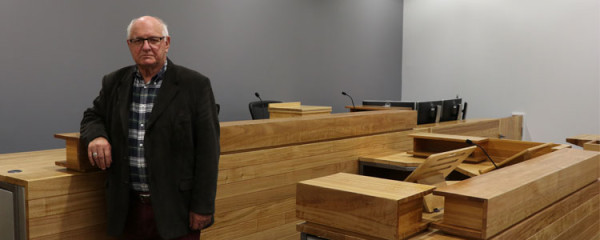
18 July 2017
The trail of the snail: Reflections on negligence law
Professor Sir Grant Hammond
Did you hear the one about the Scotswoman, the snail and the bottle of ginger? Sir Grant Hammond, Professor of Law and Judicial Studies at the University of Waikato knows it well. It’s a story that set the course of negligence law to this very day and he will be shedding more light on this famous case at his Inaugural Professorial Lecture on 18 July.
The most famous litigant of all time in the western world, May Donoghue, consumed a bottle of ginger beer in a Glasgow café in 1928. There was, allegedly, a decomposed snail in the bottle and she subsequently became ill. She was destitute, divorced, and a single parent. But against all odds, she pursued a claim against the drink manufacturer to the highest court in the UK, the House of Lords, and prevailed.
The case made legal history. “The decision defined the duty of care a provider owes the end user, which has rolled down the years throughout the common law world,” says Sir Grant, who while writing a book in the UK stumbled upon some little-known facts about the case. “It’s really a fascinating story, but there’s still a lot of background which has never been widely revealed and the full story deserves to be told.”
Sir Grant is a specialist in judicial remedies. The judge has had an extensive career that’s combined practice with academia, taking him all over the world. He has published three books and more than 50 law review articles, was Dean of Law at the University of Auckland, was a two-term President of the Law Commission of New Zealand, and in 2011 was knighted for ‘services to law’.
Sir Grant Hammond’s Inaugural Professorial Lecture is on Tuesday 18 July starting at 5.15pm. It is free and open to the public. Parking is free after 4.30pm in the University of Waikato’s Gate 1 (Knighton Road) carpark.
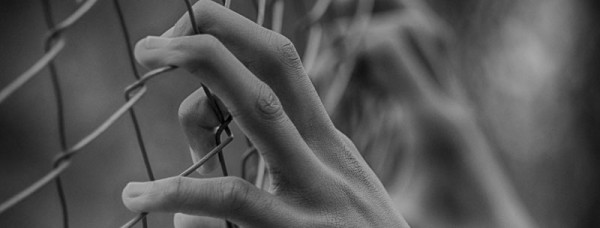
30 May 2017
Mean, misunderstood, and mistreated: Psychopathy in the wild and in prison
Professor Devon Polaschek
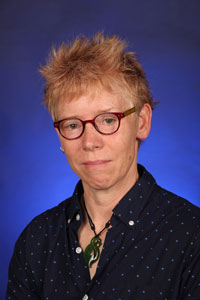 When people are asked to define a psychopath, examples from popular culture such as Psycho’s Norman Bates, Silence of the Lambs’ Hannibal Lecter or the Saw series’ John Kramer might spring to mind. But psychopathy is a widely misunderstood form of personality disorder, according to the University of Waikato’s Professor of Psychology Devon L.L. Polaschek.
When people are asked to define a psychopath, examples from popular culture such as Psycho’s Norman Bates, Silence of the Lambs’ Hannibal Lecter or the Saw series’ John Kramer might spring to mind. But psychopathy is a widely misunderstood form of personality disorder, according to the University of Waikato’s Professor of Psychology Devon L.L. Polaschek.
“News media, films and television shows often depict sadists, criminal masterminds and evil dictators as suffering from psychopathy but these depictions bear little resemblance to most of the people identified as psychopathic by scientific methods,” says Professor Polaschek.
“The scientific literature on psychopathy is also confused – psychopathy is more complex, more interesting, and at the same time, more ordinary than it first appears,” she says.
In her Inaugural Professorial Lecture this month, Professor Polaschek will talk about the modern scientific understandings of psychopathy. Using her longstanding research programme on high-risk violent prisoners, she will consider how some people become psychopathic criminals, whether they can be released safely into the wilds of our communities again, and whether the psychological treatments made available to them are helping them change their psychopathy.
Professor Polaschek’s Inaugural Professorial Lecture is on Tuesday 30 May starting at 5.15pm. It is free and open to the public. Parking is free after 4.30pm in the University of Waikato’s Gate 1 (Knighton Road) carpark.
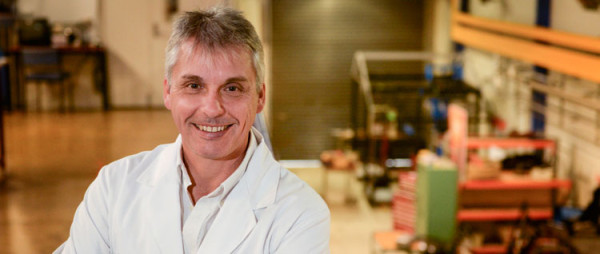
11 April 2017
Robotics in primary industries: The revolution begins!
Professor Mike Duke, Faculty of Science and Engineering
The robots are coming, and Professor Mike Duke from the School of Engineering will explain how humans can embrace their arrival in his Inaugural Professorial Lecture.
More than 70% of New Zealand’s merchandise exports come from the primary industries, with the Ministry for Primary Industries aiming to double primary exports from $32 billion in 2012 to $64 billion by 20251.
Professor Duke says increasing labour costs, mainly due to the need to import labour, and concerns over labour reliability, coupled with environmental and health and safety legislation are threatening the profitability of many primary sector companies.
He says to address these issues, the widespread introduction of robotics and smart machinery into New Zealand’s primary industries could save companies money, improve safety, quality and efficiency.
“As the revolution progresses, we’ll have to get used to the sight of robots roaming the fields and orchards of New Zealand,” says Professor Duke.
In his lecture, Professor Duke will explain the work of the University’s AgriEngineering Research Group (and its partners), which aims to turn the vision of primary sector robotics and smart automation into a reality.
Professor Duke’s Inaugural Professorial Lecture will be held at the Academy on Tuesday 11 April starting at 5.15pm. It is free and open to the public. Parking is free after 4.30pm in the University’s Gate 1 carpark.
1Ministry for Primary Industries https://www.mpi.govt.nz/exporting/overview/growing-exports/
